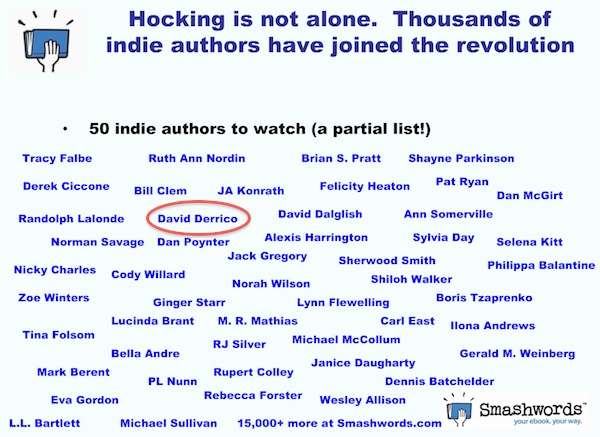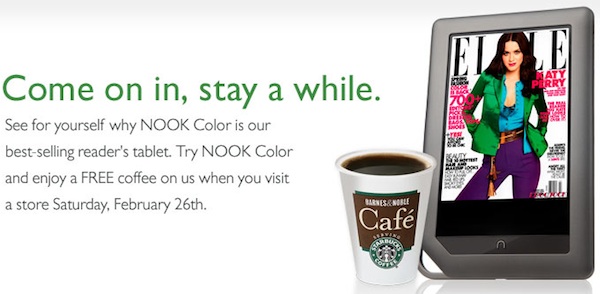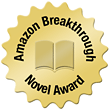It may surprise you to know that when you buy an e-book from Amazon, B&N, or pretty much any other e-book retailer, you’re not really buying the e-book in the same sense that you’d buy a printed book or, say, a tomato. You’re actually paying for a license to do certain things with the e-book, such as download it to a certain device, read it, lend it one time for 14 days, perhaps listen to it with text-to-speech (or perhaps not), etc. But it’s quite confusing for a couple of reasons: first, it feels like a sale (not a license) because you pay money, then download the e-book, then it sits on your e-reader or computer and it certainly seems like you own it. Second, neither the publishers nor the retailers have really gone out of their way to explain or market these transactions as mere licenses instead of sales, since they know people are unwilling to pay as much for a license as for full ownership of something (note that the button on Amazon says “Buy Now,” not “Rent Now” or “Lease Now” or “Click Here to Enter into a Complicated Licensing Arrangement”).
But this ambiguity leads to certain problems and misunderstandings. For example, the infamous case of Amazon removing the book 1984 from people’s Kindles — which was actually pretty reasonable when you understand that those e-books were licensed, and not sold. (You know those 50 pages of legal crap you skip over when you create an Amazon account or update your iTunes or iPhone software? It’s in there somewhere … I think — I didn’t read it.) Since Amazon was merely licensing those e-books to you, under their own license from a publisher (who only licensed the right to distribute the book — and did not buy the copyright — from the author), once Amazon realized that one of those licenses was invalid (in this case, the publisher did not properly license the right to distribute the work), the subsequent licenses down the chain became invalid. And since it was a license, not a sale, you never legally owned that copy of 1984, so Amazon did what they thought was right at the time, and removed it.
In the physical book world, you’ve probably heard about the “first sale doctrine.” That means that, once you lawfully purchase or acquire a printed book, you can then lend or re-sell it as you see fit. (You can not make additional copies, but you can sell the one copy you have.) But this is where the confusion comes in — people understand they have those rights with a physical book, even if they’ve never heard of the first sale doctrine. They still know they can lend the book to their sister. And they expect the same with an e-book, because they assume they bought the e-book and didn’t just rent or license it. Of course, to be reasonable, lending or selling a physical book means you lose access to it, and the same is not true of a digital file (which you can keep and email to a friend), so perhaps it’s not fair for the same rules to apply.
Where it gets confusing is that, while no one is going out of their way to point out that you just plunked down $12.99 to only license that new e-book, Amazon is going out of their way to assure customers that they will never remove purchased e-books from customers’ Kindles again. When you buy an e-book from Amazon, you can download it to your Kindle, and it will stay there, whether you’re connected to Amazon or not, whether Amazon even continues to exist or not. You don’t have to log in or authenticate or anything to keep reading it. You can even download a copy of the e-book to your computer and back it up with the rest of your computer data. And if Amazon disappeared tomorrow, you’d keep right on reading whatever e-books you had already downloaded. In short, it sure feels like you bought and own the e-book.
Even those of us who understand that e-books we buy are actually licensed are generally OK with the situation, because of all the safeguards I’ve described above. I own the file, it sits on my Kindle, on my computer, and backed up on an external hard drive, and there’s no way for Amazon to reach into my computer and remove it or stop it from working. I can turn my Kindle’s wireless off and they can’t touch that either. So I’m OK with paying for an e-book under the current system. But I don’t think readers will accept full-on e-book licenses — not without certain guarantees that make those “licenses” act more like traditional sales. For the same reasons, I don’t think customers will accept reading “in the cloud” — e-books you read only while connected to the Internet and don’t download anywhere — since we understand our access to those titles could be cut off at any time.
I know readers are willing to give up owning a physical object, and I even think they’re willing to give up the traditional “first sale” print rights of lending and resale, so long as the e-book prices are lower than physical. This is a key point: whether it’s called a license or a sale, readers do understand that they don’t get all the rights they get with print books, and don’t think they should pay the full print price (also, of course, we understand e-books cost less to produce). But I don’t think readers are willing to give up ownership of the digital file (at least not now or anytime soon). People want to build digital libraries and own those files forever — they don’t want to re-buy them in some other format for some new e-reader / tablet / smartphone / laptop device 5 years from now, and they don’t want to somehow lose access to them. So, call it a license, call it a sale, call it whatever you want, so long as I can download the file to my computer and back it up and keep reading it even if Amazon disappeared from the face of the Earth or wanted to stop all Kindle operations tomorrow.
Of course, publishers would like nothing more than to sell you an e-book today, and in 5 years, when some new e-book format magically appears, sell you that same e-book again in that new format. After all, it worked for the music and movie industries, which made you buy cassette tapes, then CDs, then MP3s (and VHS tapes, then DVDs, then Blu-Ray DVDs). Will they get away with it? I don’t think so. The file is already digital, and there’s no issue of higher quality or resolution — words are words are words. (Of course, “enhanced” e-books, with video and such, would be a different story if anyone wanted to buy such things.) And, there’s no reason why the Kindle 8 or iPad generation 17 can’t read MOBI or ePub e-book files — and even if they can’t, software will exist to convert them into the new file formats. Of course, this is where DRM comes in, and where things get messy. This is why a lot of people are so strongly against DRM, and where the issue of ownership comes to a head: we understand publishers want to prevent copying, but if I own the e-book file, I should be able to convert it and read it on some new device 5 or 10 years from now. And, if I can’t, if this isn’t an e-book sale, but just a strictly-controlled rental that will expire in a few years, then forget $9.99 — people aren’t going to be willing to pay anywhere near print book prices for e-books, nor should they, if they’ll just have to keep re-buying them every few years. And I think the publishers are intentionally refusing to clarify the issue, because they don’t want customers to think about that possibility. But what I think they overlook is that, if they try to get us to re-purchase the same e-books in a different format, people will start removing the DRM from their legally purchased e-books and wonder why they’re paying for them in the first place. Yes, readers have the ultimate trump card here, so long as we are able to download the files.
So I think we need a little more clarity from the publishers and retailers on the licensing vs. ownership thing. We give them our $9.99, and they can do whatever they want with it. It’s theirs. What do we get in return? What rights do we have? What do we own, if anything? And what can we do with it 5 years from now? And if readers don’t like the answers they get, I don’t think publishers will like the readers’ response.
So, how about a new e-book sale/licensing doctrine, one to replace the first sale doctrine from the print book world? OK, we can give up lending and re-selling, so long as we own the digital files and have the right to convert them into whatever formats we need, now or in the future. No copying, no pirating, just me reading the e-book I bought today 10 years from now. Sound fair?











